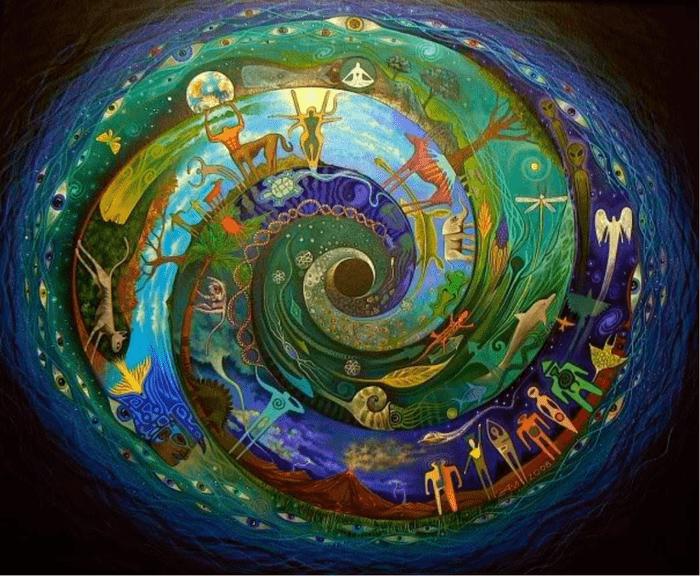
#Reincarnation and #Karma | Order of #Bards, #Ovates & #Druids
by Dr Renata Bartoli
It’s not possible to give a date when the concept of reincarnation first appeared among human beliefs because it seems to be as old as humankind itself and it is present in cultures all over the #world.
Its first manifestation seems to be in Shamanism. From it the belief in rebirth has passed into all major religions that have developed on earth, accompanying and influencing them throughout their evolution.
Reincarnation though transcends the limits of specific, codified religious systems. Nowadays, in a more and more secularised Western society, it is science that enjoys respect and credibility, while traditional religions are constantly losing public interest: in fact, people are in search of a more direct and less structured spirituality. In this climate, interest in reincarnation is not fading but growing and this ancient, primordial belief is now receiving validation and support by just those very scientific milieux that – traditionally – have always been the antagonists of religions. I say ‘primordial belief’ because looking back to the entire history of human thought, reincarnation is actually the only worldwide concept that has shown continuity and permanence from our origins to the present day.
Eastern religions are well known to hold the concept of rebirth at the very core of their teachings. What is less known is that reincarnation has also always been present in monotheistic faiths and philosophical systems of Western and Middle Eastern societies.
In classical Greece Plato, Diogenes and Pythagoras spoke of reincarnation and past life regressions.
The #Ancient Jews believed that Abel had reincarnated into #Moses, and in the Middle Ages reincarnation appears in the esoteric teaching of #Kabbalah, developed further in later times by the Hassidic movement.
The concept of Karma was introduced to Latin Rome by Ennius, after being imported from the newly conquered Eastern territories, and #Virgil describes reincarnation in his #poems.Medieval Islam was also familiar with the concept of rebirth, and the Persian Sufis have preserved this belief up to the present day. The #Quran itself explains the law of Karma.
What about Christianity? Reincarnation was an integral part of the beliefs of early Christians and there are references to it even in the teachings of Jesus himself. However everything changed in #325 AD when, at the #Council of #Nicaea, reincarnation was condemned as #heretical. The fact is that this council was called in times of great turmoil and insecurity and its decisions were dictated by political needs and not by spiritual considerations; in fact the Council was requested by #Constantine, the emperor of the Eastern #Roman #Empire, and it marked a crucial political turning point in the fate of what would later become Europe as we know it today.
At that time the old empire was disintegrating under the pressure of nomadic peoples coming from the East, bringing with them a completely new and unknown civilisation. Constantine was the head of this vanishing empire and he was desperate to maintain an order which was faltering in the face of the advancement of the chaos brought by them. To do so he needed absolute power and absolute obedience and to obtain them both he needed very strict laws, able to keep order within the threatened boundaries. In such a situation #people were supposed to #obey #without #question, and no challenge to his #authority or the status quo was tolerated.
Reincarnation states that we incarnate over and over again, experiencing all sorts of human conditions, and that someone who had been a king in the past could be reborn as a tramp and vice versa. The precariousness and transitoriness of social status that it taught certainly sounded very subversive to a frightened monarch, and didn’t hold any appeal for him. Constantine used a heavy hand to #eradicate it. He banned it as he did all other ideas or beliefs he felt threatened by, and he didn’t hesitate to #execute their #supporters, mercilessly silencing any opposition.
In spite of all this the idea of #rebirth has never been extirpated and today – although the traditional religious systems are in crisis throughout the entire Western civilisation – the belief in reincarnation is growing steadily both in Europe and the USA, as the statistics of the last twenty years show.
